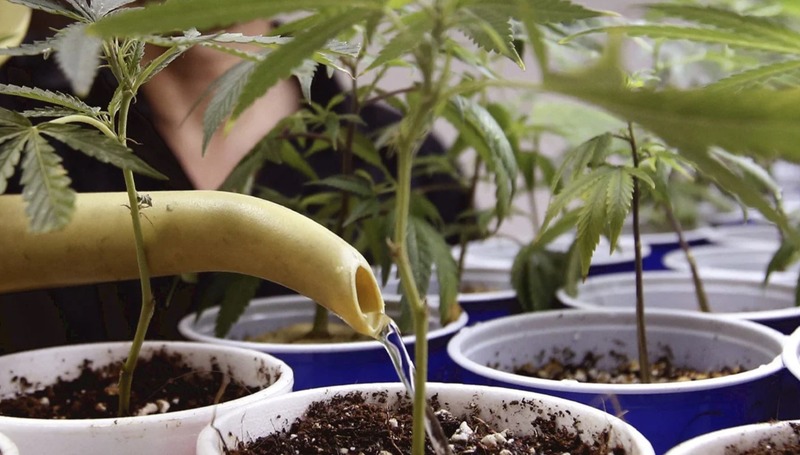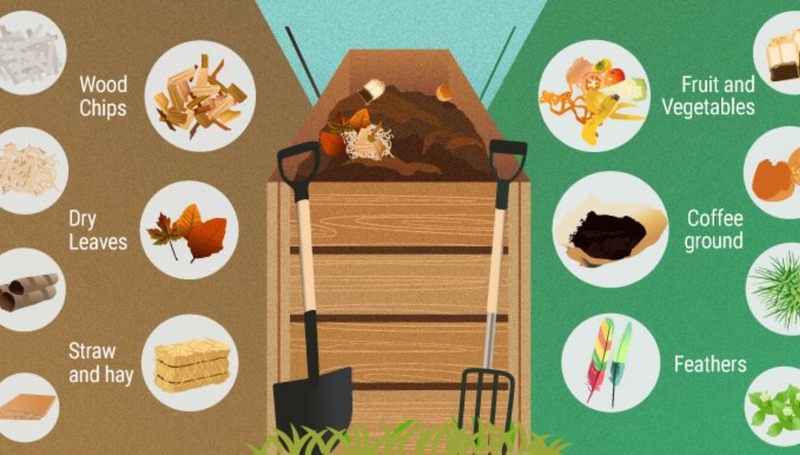Compost’s many elements make it an outstanding option for fertilizing cannabis plants. Compost is a wonderful source of nutrients and microorganisms, which have many advantages. To create compost tea solution, steep compost in aerated water. The goal is to infuse fungal colonies, nutrients, and beneficial bacteria into the soil or vegetation of the plant in order to promote growth and protect against disease. Looking to try something new? Check out this.

Using the Compost Tea For Cannabis Plants Organically
When cannabis plants are treated with compost tea, it has a beneficial impact on the plant organically, but few marijuana producers employ this technique to enhance the appearance and quality of their cannabis crop’s harvest. That being said, compost tea should not be used instead of 100 percent of the soil additives.
You should still add other nutrients to a developing marijuana plant. Compost tea should be used to drench the soil and complement it for additional elements. The tea can deliver an abundance of micronutrients to the soil via the stomata of the leaves if sprayed as a foliar spray. Let’s take a look at the advantages of this tea, as well as how it may make a big difference in your harvest.
Benefits Involved with Compost Tea
The compost tea, when prepared and applied to the plant, helps to produce stronger, larger and more resilient and flexible plants. When cannabis plants are sprayed with the compost tea, it act as a barrier against harmful bacteria, assisting in the development of disease resistance.
When you apply the tea to the soil, you’re adding life to it by creating a healthy population of microorganisms. These are aerobic microorganisms, which means they have extra nutrients and can ventilate the soil, allowing for better nutrient absorption and retention. The roots become strong and immune to diseases that cannabis plants are susceptible to.
Compost Tea For Vigorous Cannabis Growth
Compost tea is an excellent liquid fertilizer for your cannabis plant. It contains all of the nutrients (including manganese and nitrogen) that your cannabis plant needs for healthy growth, especially during the vegetative stage. Compost tea produced at home is a wonderful liquid food for your cannabis plant. Because it provides all of the elements necessary for a thriving, healthy, and swiftly developing marijuana plant, most organic farmers who want to go natural and pure with their crops use this brown soup exclusively. It may also be used as a great complement to your crop development efforts. However, whether you add it to the plant as an additive or just use it as a 100 percent organic fertilizer, creating the right compost tea recipe for your cannabis plant’s bloom is joyful work.
Ingredients Of Effective Compost Tea
Making the best compost tea for cannabis should not be too complicated. All you need is a simple compost tea recipe to assist you with growing your marijuana plant. To produce a high-quality compost tea with greater effectiveness, however, you must consider a variety of factors including air pressure, water quantity, and compost type, among others. Furthermore, careful consideration must be given to the components that will make up your compost tea. The following is what your list of compost tea ingredients should ideally contain.
Compost
Of course, this ingredient should be the first thing you purchase when preparing for compost tea brewing. To revitalize the food web in the soil, high-quality compost that includes bacteria, fungi, protozoans, and nematodes is required. Here’s a hint: making arrangements ahead of time might save time. It may take years to collect that variety of soil-feeding greenery and brown things. Nonetheless, it is always worth the wait. Start collecting organic material like food scraps, leaves, and twigs as soon as possible. Store-bought compost can be used to produce compost tea if you don’t have the main ingredient.
Molasses
Adding extra nutrients to your compost tea is part of the process. Compost has more than meets the eye. The number of fungus colonies and bacterial organisms in compost gives it its strength. These germs in compost require food. Molasses feeds the bacteria and allows them to function as active organisms in the soil food web, allowing them to continue to thrive. If you believe your compost is of sufficient high-quality, you may skip adding molasses.
Worm Castings
Worms are more thancylindrical moving creatures when it comes to farming. Let us discuss this further. Worm castings (the by-product of a worm’s digestion of food) provide nutrients including concentrated nitrates, phosphorus, magnesium, cobalt, copper, zinc, borax, nitrogen and manganese – all of which are required for plant growth. The nutrients in worm castings have already been converted into digestible components, which the weed plant can readily absorb. To guarantee that your compost tea is suitable for application,
Fish Hydrolysate
Any great soil must have nitrogen in it. It is the organic component of all life, which makes it a critical plant nutrient, especially during the vegetation phase of plant growth. Fish hydrolysate contains a high level of nitrogen and, when combined with crustaceans, works best to produce a healthy, disease-immune cannabis plant. Even more so, compost made using fish hydrolysate serves as food for the beneficial microorganisms that live there.
Kelp
Compost tea made with kelp for cannabis flowering is even more effective. Kelp provides nourishment to fungus that may be found in the compost sample. It also aids in the formation of fungal colonies by providing surfaces on which they may attach as they develop.
Oxygen
Aerating your compost tea is critical for the organisms in it to flourish. This implies you’ll need a good oxygen system to start. Most of the time, in order for microorganisms in compost to develop more quickly, the mix should be well-oxygenated. You must give this key component if you want to avoid producing poisonous compost tea. Use a strong air pump while brewing. It’s suggested that a pump with a 6ppm limit be sufficient for your Brewing activity.
